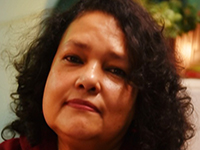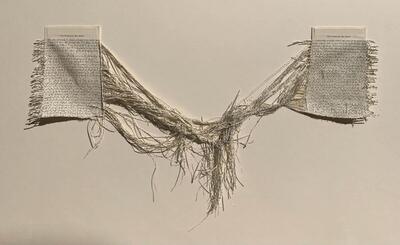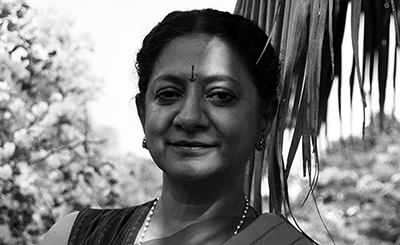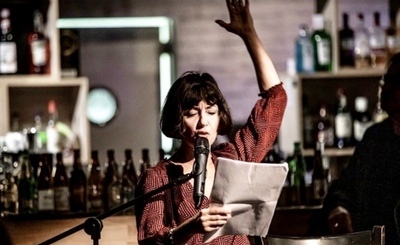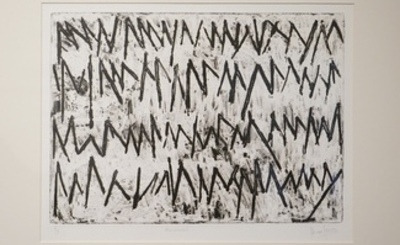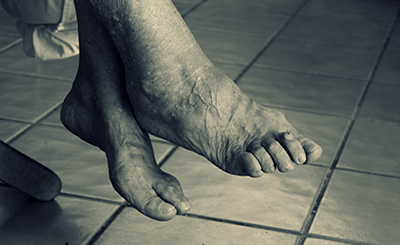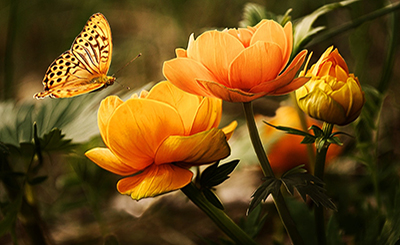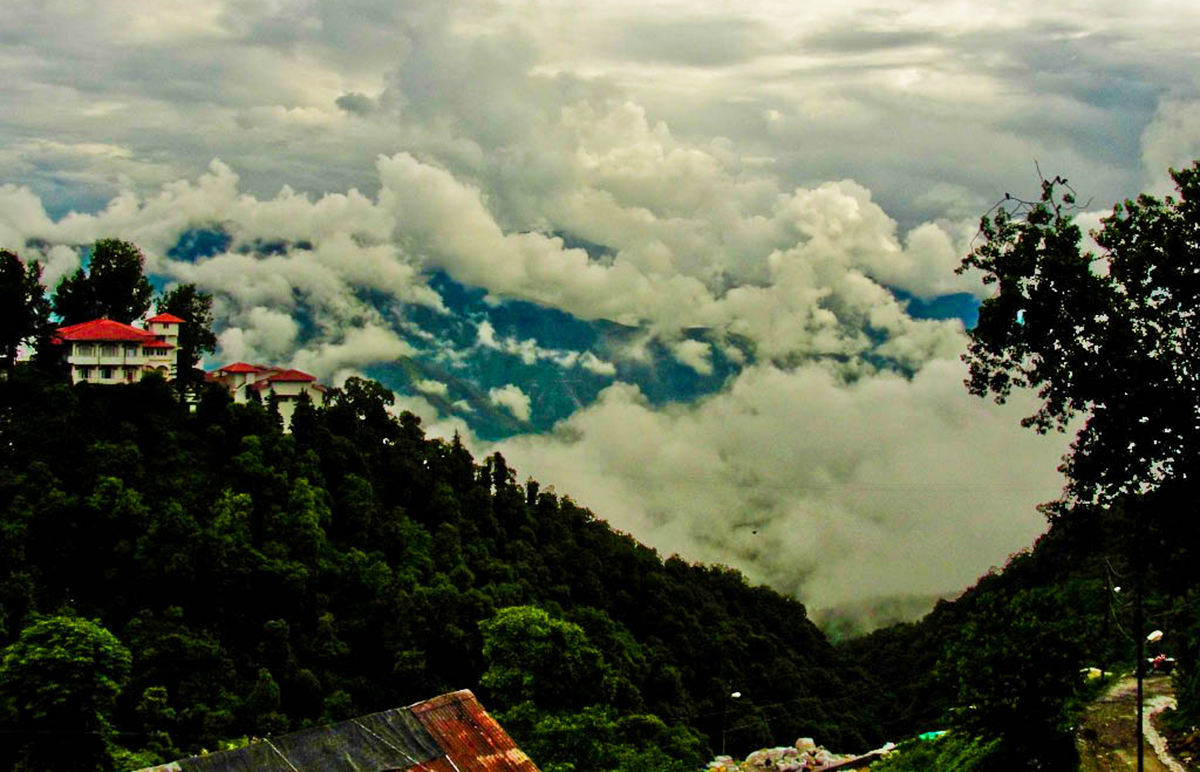
View of Mussoorie from the top of Gun Hill. Photo: Wikimedia Commons
A monthly column about miscellaneous things, curated by Palash Krishna Mehrotra
Life in the Hills
Make no mistake, Mussoorie is an enchantingly quaint little towny-hill-station, tucked away in a green corner of Uttarakhand. Make no mistake, the weather is to die for and so are the momos at the little corner café when you reach Landour. Make no mistake, Mussoorie or not, we all have much to be grateful for.
I began working here long ago and have never regretted the job change. But life in the hills has its downside. Let me explain.
First of all, if you’re one for the bright lights of the city, this isn’t the place for you. At night though, the hillside sparkles with the lamps of a thousand households, where each family is running the gamut of human emotion. A child struggles with his homework, a woman seeks to make a palatable dinner with last week’s vegetables and I read the paper that I often battle to receive.
Sometimes, the vegetable truck is late. Sometimes, it doesn’t come at all. Sometimes, one relies on the Dehradun savari to bring you back a few tomatoes and if you’re very lucky, a kilo of brinjals.
The roads cave in, the hills fall down. Trees give up under the whip of the rain and people huddle under psychedelic umbrellas, a splash of colour in a dreary landscape.
You decide to bake but the provision store in the hamlet below the hill doesn’t keep yeast. You crave mutton-doh-pyaza and blueberry tart but the restaurants have been decorated with the closed-due-to-Covid sign.
And if you’re the art and craft sort, and you’ve run out of that particular shade of aquamarine floss, well, let’s put away the embroidery and read instead.
Network connections offered by giants or minions are as erratic as power cuts on Raisina Hill. You’re ranting away to a relative in Timbuktoo about how old Aunt Mirinda has cut you out of her will, when suddenly you hear the deafening silence on the other end. For the last five minutes, you’ve been speaking to a telephonic ghost called Airtel.
You’re in the middle of a thematic analysis of The Tempest when you realise that all the students look like they’ve just returned from Greenland. The connection has snapped and the class can only continue when the wires decide that they have to work.
Ah! Mussoorie — land of beautiful pines and landslide dreams!
Storming In
Shakespeare supposedly said, “What’s in a name and all that?” I use the word supposedly because he’s in the sepulchre and even if I dug him out, he’d be pretty much gone by now. So, I couldn’t really ask him if he had.
Names are ‘kept’ as they say in India, according to horoscopes, convention and the 27 houses or Nakshatra. Priests are consulted and the day on which the infant comes into this world is noted. I haven’t the faintest idea what was consulted in my case. Nothing, I suspect, for my parents gave me the unconventional name of Stormy. It is rather unconventional against the Indian fabric of Neha, Anamika and Sandhya. People exclaim in wonder at the unusuality of it; going into poetic raptures that seem awfully artificial and rather dubious to sceptics like me.
When I introduce myself, people immediately attempt to show off their grasp of the idiom by exclaiming ‘storm in a teacup’ and smiling away to kingdom come. Whatever it is they’re smiling about, I wish they’d tell me because I do not see even the remotest of connections between the expression and my name. Well, we’ll just let them have their moments in the sun, shall we?
Some people ask me if I got the name Stormy because I have a bad temper. Now, if that isn’t a slight on my parents, I don’t know what it is. Are you implying that my parents were mean, revengeful people who got back on a squalling infant by naming her Stormy? That is such an insult to everyone in the equation. (And no, I didn’t have a bad temper, if that makes any difference.)
My niece Samantha was once having a conversation with a friend who kept asking her something about her Aunt Cloudy. Puzzled, Samantha replied that she had no living memory of an aunt called Cloudy. Two seconds later, she realised the friend was referring to her Aunt Stormy. That made for a hilarious retelling over afternoon tea.
Since we are talking about names, let me not hog the strobes, tempting though it is. Let’s talk about Punjabi names. Why do men have the name Happy? I’m not saying men can’t be happy, but with a name like Happy Singh, I’d be rather unhappy. Then we have Lovely Kaur. I have no doubt that the Lovely in question is lovely, but I find the name rather presumptuous. But I’m told these are not their real names, which brings me to the good name business.
Very often when I travel, I meet at least one passenger who will politely greet me and ask what my ‘good’ name is. Oh hello. I don’t have a bad name. Someone, however, did ask me once, if living with such a name as mine was difficult. Bengali as well as Assamese families complicate things by this ‘good name’ and ‘home name’ business. The good one is used for all documents and such while the home name is used at…well, home. Is it just affection or the Indian propensity to complicate things? And it’s not even the shortened version of a name like Raka for Rakashree. If the ‘good name’ is Maitreyee, the ‘home name’ is Shona, miles away from any sort of similarity. I just don’t get it.
And then we have a long list of children in class, whose names all begin with the letter A. Why are we all in such a hurry to go first? Whether it’s at the doctor or that coveted interview, we just have to be the one at the top of the list. Parents go a little further nowadays by giving their children names spelt with a double A. Something to do with the sagacious advice of the neighbourhood pundit, I suspect.
Talking about people whose names begin with an A or a double dose of the letter, how can I forget the girl my brother was going to marry? She was called Agreement. Fortunately, they had a disagreement and the affair broke up. I hope I’m not barking up the wrong tree but was it deliberate when Eric Barker named his book Barking up the Wrong Tree? There are endless possibilities where names are concerned.
Some elders are rather endearing. (note the some) This example is proven by a gentleman who changed the spelling of his name from Choudhary to Chaudhari believing that he, his family and his descendants would be unique. I’d rather be unique in the personality department. But to each his own.
I’ve taught children whose names have been shortened, lengthened, mutilated or warped out of shape. Pulkit became Pulley. That’s why he was always hung up on something. Chandragupta became Maurya and Tracy became trackpants.
As a student of Assam history, I once read that my surname Hazarika came from the fact that the man commanded a thousand paiks. (A paik was a labourer who had to render compulsory service to the state, while hazaar is, as many people know, 1,000) Interesting, no?
Names define us. They are a river of indelible ink flowing through the landscapes of our lives. So, Shakespeare my lord, thou beest proven incorrect. There’s plenty in a name.
[All references to people are deliberate but the author means no harm.]
Fears
A shadowy regret follows mine every waking thought
An irrefutable truth that Time cannot be bought.
All of us are dogged by regret at one time or the other. I’m no different. And as far as writing goes, I’m strangled by it. Twenty years of ideas went down the drain because yours truly was too lazy to make notes. Or too ‘busy.’ Yours truly was always super confident that nothing would slip away from the memory. Yours truly knows better now. Truly.
Which is why I stumble blearily out of bed at precisely 4:11 a.m. with the following lines in my head which form part of this piece on Fears.
I feel like a mariner without a compass.
The albatross of Old Age fastening itself around a neck
draped in gradually wrinkling skin.
I’m building a mansion
without a blueprint
where I shall live
sans companions and teeth and carrot slices.
Our earliest fear, perhaps during childhood, was the bogeyman, which given any other name, would be just as frightening. I’m sure each of our parents has, at some time or the other, threatened us with the dark man who would carry us off in a sack and sell our eyes or kidneys. One step further, a few years down the line when we were too big to fit into the sack, the fear would be about the parents sending us off to boarding school. As we grew, the fears changed. Fears of acceptance slid slyly into the picture. There were pimples and proms and perhaps the fear of growing up. Society was cracking the whip and suddenly there were ten thousand different causes for fear.
The most crucial of all fear is probably the unacknowledged, deep-seated fear of living without love. There are people who lead dark, loveless lives, people who quietly give up one day, because there is no light. And what about the fear of losing loved ones?
There are fears and fears. Today, it is no longer about the bogeyman that will come and carry us off. (Some of us are too fat to fit into that famous sack, anyway). Today, one fear is the onset of evening shadows. How do we fill the empty hours that have otherwise been crammed tighter than deported refugees in a truck one size too small? How do we get accustomed to the blank space in the credit column of the pass-book at the beginning of every month? How do we deal with the idea that no one wants an opinion anymore? This is more frightening than Savdhaan India episodes.
During that period of time that I like to think of as the ‘Cancer Days’, I tackled and battled and got over many fears. There were the fears of being strangled to death by the suffocation I felt on the radiation bed. There was the fear that during the MRI scans, the machine would swallow me and spit me out in a distant land where everyone spoke Hebrew and didn’t know who Mark Knopfler was. There was the fear that I’d run out of reading material while stuck in the chemo recliner. So many fears and just one little heart to fight and tell myself I was being stupidand things would improve. They did. They have.
I’ve been cancer free for six years, touch wood. I have stacks of books to feast on. No one calls me the one boob dude. The point is, the fears have changed. Of course they have.
Since I’m part of the most noble profession, I have work on a 24/7 basis. People, even strangers, can always tell I’m a teacher because I have this appendage in the form of a bundle of answer scripts, tucked permanently under my arm. I live with the fear that I’m never going to finish marking these on schedule. I wake sweating while an irate boss screams at me. Plainly put, my services are no longer required.
However, this bit of writing isn’t just about me and my fears. Does the housewife fear she’ll oversleep and the kids will miss the school bus? Does a man fear his wife will have made the same boring potatoes for dinner? Does a doctor fear sleepless nights after he’s treated an insomniac? Do dogs fear starvation? Does a rapist even fear what will happen after the violation?
A gazillion fears exist in my mind and yours. Given half a chance, if we allowed all of them to ride roughshod over us, they’d asphyxiate us to a slow death. So I’m planning on taking that old albatross and clobbering it to kingdom come. Sounds good? Let’s go.
More from The Byword
Comments
*Comments will be moderated



